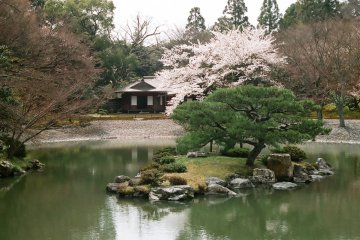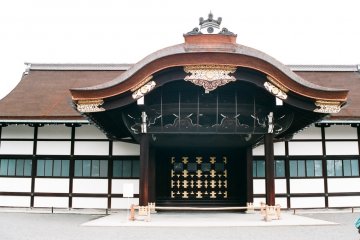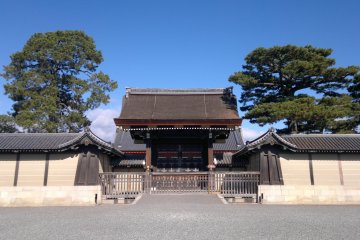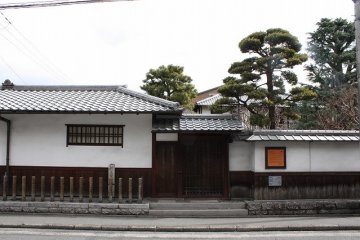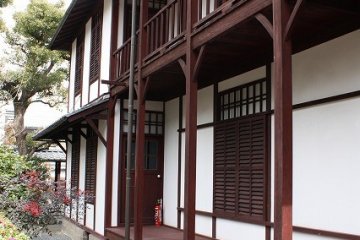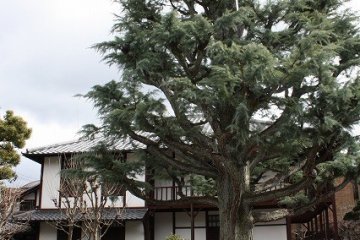In the east side of Teramachi Street, there lies Kyoto Gyoen, silent.
I wished I could hear Tenno Emperor walking on the pebble stones at Gosho - Imperial Palace.
I also wished to hear his peers playing football nimbly in the yard there.
So, on a sunny day in March I hurried to the Palace down Tomikoji Street.
I headed northward down Tomikoji Street alone.
As I crossed Oike Street and passed Kyoto Local Court, I saw a dark green clump of trees beyond Marutamachi Dori Street.
It was the Kyoto Gyoen-Imperial Garden.
Tourists call this place Gosho. But as Gosho is in Gyoen, it would be precise to call it Gyoen.
I walked eastward on Marutamachi Street and then turned left onto Teramachi Street.
It’s fun to know the name of each street in Kyoto.
The sky was full of bright spring light.
I easily found the former house of Joh and Yae.
It was a beautiful colonial style mansion combining Western and Japanese styles of architecture.
It reflected Joh’s good taste, as he had a Japanese spirit with Western learning.
The house was surrounded with a hedge of camellia trees trimmed closely.
The brilliant red petals of camellia in all their glory were blinding me.
Walking around the house, I meditated that Joh and Yae would be sitting happily together in the chairs on the veranda as if they were enjoying bathing in the soft sunshine of March.
Joh would have always been watching over Yae warmly.
When Joh was asked what kind of woman his wife Yae was, he replied, "My wife Yae is not beautiful, but her way of living is handsome." In the time of Meiji, the range of activities that women could take active parts in was very limited. However, Yae didn't care about the common sense of the time. She was a true pioneer. Joh dedicated his short life of 46 years to the foundation and development of Doshisha University with the pious spirit of Christianity. And his wife, Yae, never married again after her husband was dead. He lived in her heart until she died. She loved Joh so deeply.
The mansion, where a great quiet reigned, reminded me of their past life.
However, I would like to believe that the passion they left is still now burning in the hearts of those who live in Aizu and who are studying in Doshisha as well.



